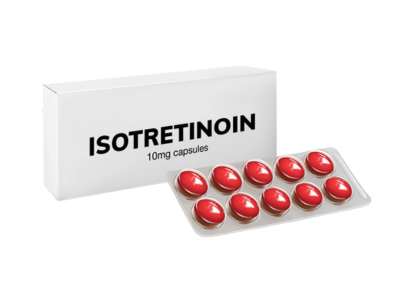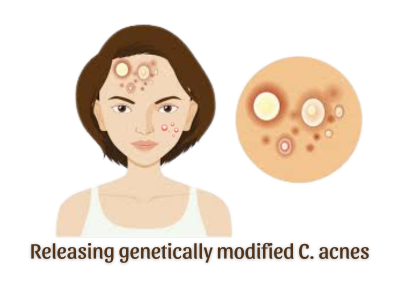A groundbreaking acne treatment method is capturing the attention of the research community: releasing genetically modified C. acnes bacteria onto the skin to treat acne.

Dr. Nastassia Knödlseder, a researcher at the Advanced Synthetic Biology Laboratory, Pompeu Fabra University, Spain, shared her perspective on this matter:
According to Dr. Nastassia, using antibiotics to treat acne may have more negative consequences than benefits. This is because antibiotics cannot distinguish between disease-causing bacteria and the beneficial bacteria on the skin that we want to preserve. Therefore, to eliminate acne-causing bacteria, antibiotics often have to eradicate all bacteria, including the beneficial ones.
Therefore, Dr. Nastassia and her colleagues set out to find a safer and more effective acne treatment method. They focused their research on the root cause of acne: the sebaceous gland cells that produce excess oil.
Through numerous studies, Nastassia observed that when these sebaceous gland cells come into contact with the NGAL protein (Neutrophil Gelatinase-Associated Lipocalin), they can self-destruct, thereby preventing the production of sebum on the skin.
Today, there are medications on the market that stimulate the body to produce NGAL when ingested, thereby reducing sebum and assisting in acne reduction – these medications often contain Isotretinoin as a component.

Although Isotretinoin is often considered an effective measure, it also comes with various serious side effects: dry eyes, lips, and skin. Another severe side effect is joint dryness, causing discomfort and inconvenience in daily activities, affecting the quality of life. Particularly, using Isotretinoin during pregnancy can lead to significant health issues for the fetus, including miscarriage, birth defects, and mortality.
Therefore, although isotretinoin may provide effectiveness in controlling severe acne, users need to carefully consider the serious side effects and only use it under the careful supervision of a specialized doctor.
Due to the side effects of isotretinoin, Dr. Nastassia’s research team raised a question: Is there a way to better deliver NGAL into skin cells without the need to take isotretinoin? NGAL needs to be introduced into each sebaceous follicle cell to destroy the cells that produce excess sebum. Therefore, an idea for NGAL distribution emerged: Why not use the very acne-causing bacteria, C. acnes, living within those follicles?
Building on this idea, Dr. Nastassia conducted research and developed a more natural approach to sebaceous follicle cells compared to taking isotretinoin. This was achieved by genetically modifying the acne-causing bacteria C. acnes—the very bacteria responsible for acne in humans.
A segment of DNA has been added to the genetic code of C. acnes to enable them to produce NGAL. These genetically modified C. acnes bacteria will be applied to the skin, where they interact with sebaceous follicle cells, helping to control the overproduction of sebum without causing the serious side effects associated with taking isotretinoin orally.

The results of the study on mice have shown that genetically modified C. acnes bacteria can control sebum production in just 2-4 days, promising an effective and safe method. The next step in the research is to assess its effectiveness on human skin models before moving on to clinical trials.
Simultaneously, scientists are exploring ways to expand the application of these genetically modified bacteria to treat various diseases, such as modifying gut bacteria genes to treat inflammatory bowel disease, modifying H. pylori genes in the stomach to treat gastric ulcers, and using E. coli bacteria to prevent urinary tract infections, bloodstream infections, among others. This opens up significant potential in the field of medicine and disease treatment.





Your article helped me a lot, is there any more related content? Thanks!
Thanks for sharing. I read many of your blog posts, cool, your blog is very good.
Your point of view caught my eye and was very interesting. Thanks. I have a question for you.